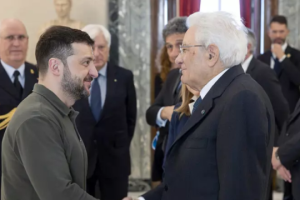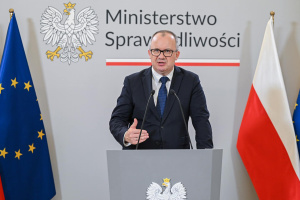
Explaining complex things in simple words: Case Ukraine and Netherlands v. Russia, Release of Ukrainians, Food security
Ukrinform
The Center for Strategic Communication and Information Security pursues efforts to provide a brief explanation to foreign audiences on the current topics of particular interest as regards Ukraine.
1. THE CASE “UKRAINE AND THE NETHERLANDS V. RUSSIA’’
On June 12, the European Court of Human Rights (ECtHR) in Strasbourg concluded the oral hearings in the international case “Ukraine and the Netherlands v. Russia’’.
- Ukraine successfully uses all possible platforms of international justice to fight the aggressor: the UN Court, the International Criminal Court, the ECtHR, etc.
- In 2022, the ECtHR considered five interstate cases related to Russian aggression. Two of them were merged into one in February 2023: “Ukraine and the Netherlands v. Russia’’, which accelerated the consideration of claims.
- This case concerns human rights violations in the temporarily occupied territories of the Donetsk and Luhansk regions since 2014 and during the full-scale Russian invasion in Ukraine.
- The achievement of this case is the legal recognition of the fact that since May 2014, the Russian Federation has exercised control over the so-called “DPR” and “LPR” and local militants, which means Russia's responsibility for aggression in the east of Ukraine.
- It is expected that the decision of the ECtHR will be passed soon, and the verdict will not have to wait for several years, which is the usual practice of international justice.
2. RELEASE OF UKRAINIANS
Russia's release of prisoners of war, civilian hostages, and deportees, including children, is one of the three points of the Peace Formula presented at the Peace Summit in Switzerland on June 15–16.
- Deprivation of the will and freedom of movement of hundreds of thousands of Ukrainians is one of the dramatic humanitarian consequences of Russian aggression.
- Russian captivity is torture for Ukrainians. The Russians set up trials, tortured and killed Ukrainian prisoners, did not provide information about the prisoners, and artificially slowed down exchanges.
- The shameful phenomenon of this war is the civilian hostages, which the Russians illegally keep without any formal grounds and illegally use as replenishment of their exchange fund.
- Hundreds of Ukrainians from the temporarily occupied territories became political prisoners of the Kremlin. They were deprived of liberty for long periods of time for their political beliefs, national and religious identity, or resistance to the Russian occupation.
- Kidnapping on the TOT of Ukraine has become the state policy of the Russian Federation. Children who have families or legal guardians are abducted and taken to Russia, where they are illegally adopted or held in special institutions, undergo re-education attempts, and change their identity.
- We require the immediate release and return to their homeland of all citizens of Ukraine illegally detained by Russia. Kyiv is also always ready to exchange prisoners of war, “all for all’’.
3. FOOD SECURITY
Ensuring food security and free navigation is one of the three points of the Peace Formula presented at the Peace Summit in Switzerland on June 15 –16.
- Ukraine is one of the main producers and exporters of food in the world. Ukrainian grain is an important factor in global food security.
- Russian aggression against Ukraine is an attack on the food security of the world, an attempt to play “hunger games’’ for bargaining and blackmail with the aim of easing international sanctions pressure.
- Since 2022, the Russian Federation has purposefully made efforts to economically isolate Ukraine bysetting up a naval blockade of commercial ports, shelling port infrastructure, and physically destroying cultivated areas and harvested crops.
- Attempts by the UN and other international mediators to negotiate with Moscow through “grain agreements’’ failed. Russia rejected compromises, once again proving its inability to engage in civilized dialogue and reach agreements.
- Despite the heavy burden of protection against aggression, Ukraine is making efforts to maintain global food security. A temporary sea corridor and new land routes for the export of Ukrainian food were laid; the Defence Forces pushed the Russian fleet out of the Black Sea ports.
- Hunger is a global problem, and therefore the pressure on Russia to prevent its food blackmail should also be global.
Center for Strategic Communication and Information Security




